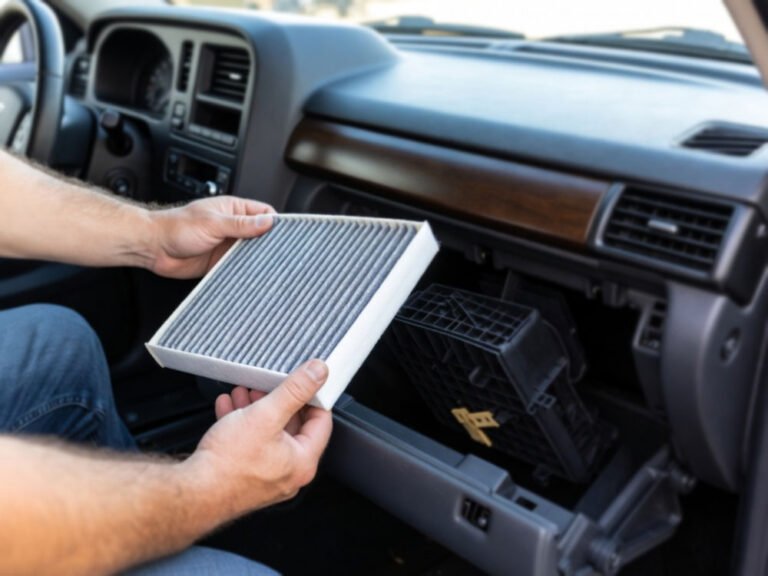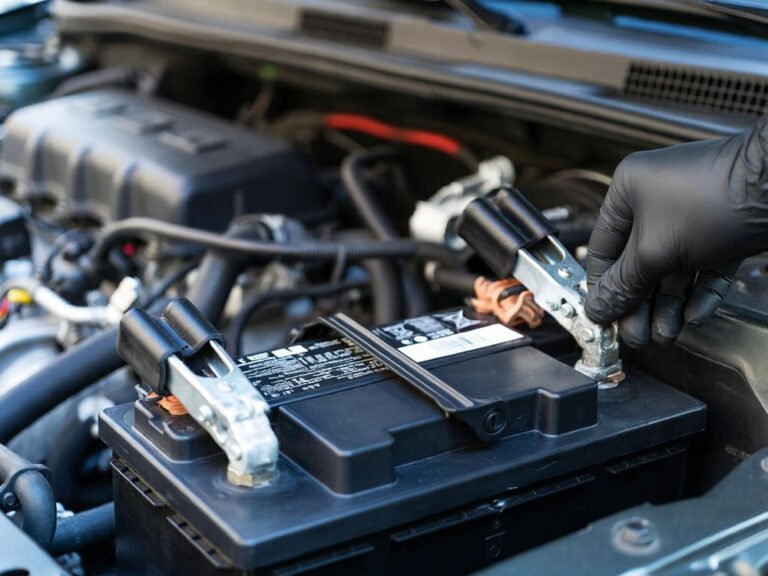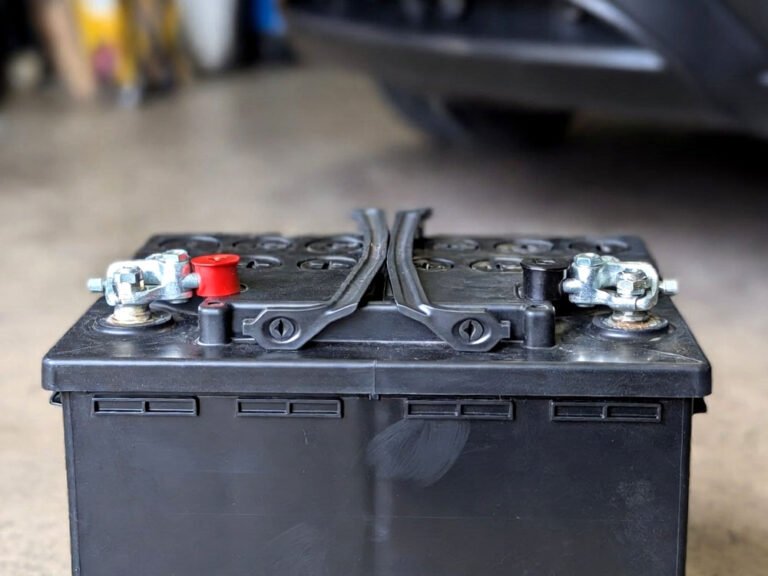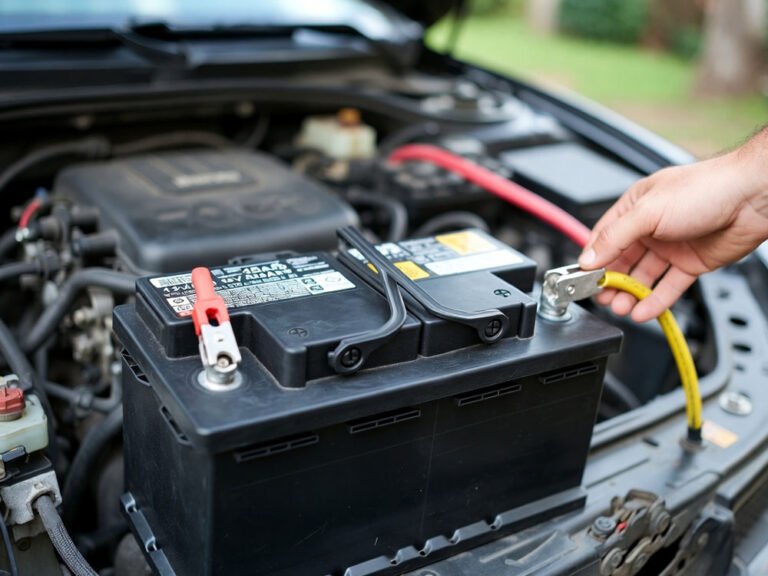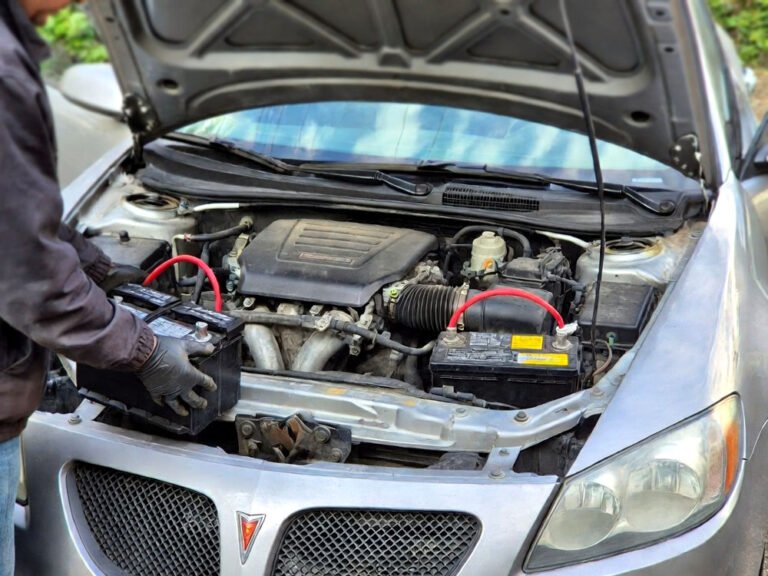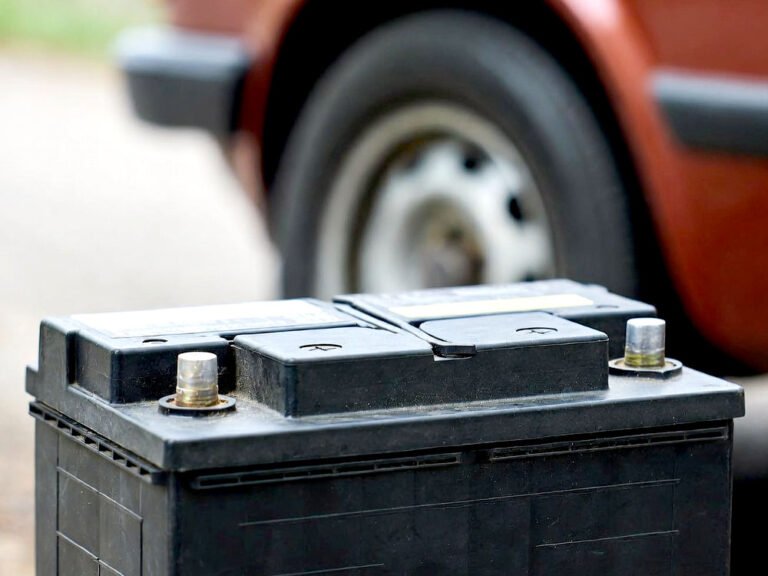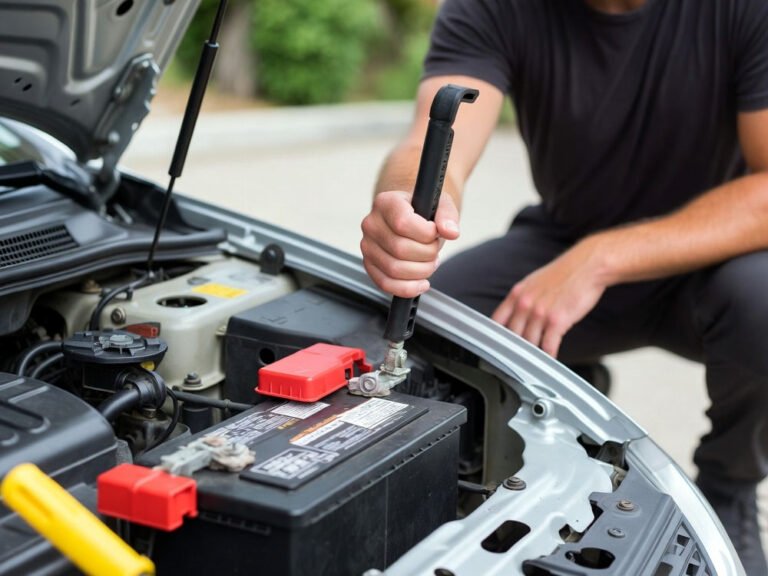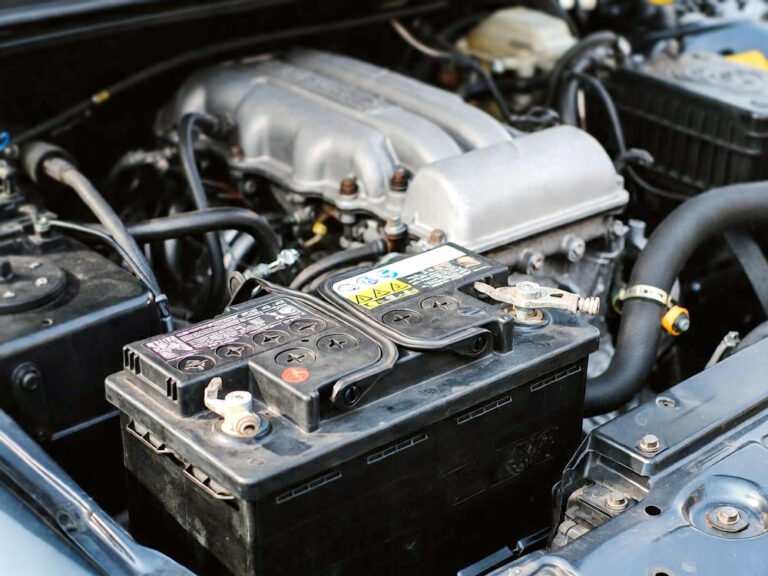You might have been driving your Chevy Cruze and suddenly noticed the AC stopped working. This happens because the car turns the AC off when the engine gets too hot. You don’t want to risk damaging your engine. The good news is, this problem can be fixed by checking some simple things like the coolant, radiator, or sensors. In this article, you will learn why the AC turns off when the engine temperature is high and how to fix it step by step so your car stays cool and safe.
Why the AC Turns Off When Engine Temperature Is High
When your Chevy Cruze engine gets too hot, the car’s computer decides to turn off the AC. This is because the AC uses power from the engine, and when the engine is hot, it needs all the power it can get to cool down. If the AC keeps running, it makes the engine work harder and hotter, which can cause serious damage. This safety feature is designed to protect your engine and avoid costly repairs.
Your engine temperature can rise for many reasons. Maybe the coolant level is low, the radiator is blocked, or the thermostat is stuck. When the engine’s cooling system isn’t working right, the temperature goes up. The car’s computer watches the engine temperature sensor and, when it detects a high temperature, it shuts off the AC compressor to help lower the heat.
If the AC turns off often, it is a sign your engine might have a problem that needs fixing. Driving with a hot engine is risky. It can cause the engine to overheat and break down, leaving you stranded or facing expensive repairs.
To avoid this, you must keep your engine’s cooling system in good shape. This means checking the coolant level regularly, making sure the radiator is clean and free of dirt or bugs, and replacing old parts like the thermostat or water pump when they stop working well. If you catch these issues early, your AC will keep working without interruptions, and your engine will stay healthy.
- The AC turns off to protect the engine from overheating.
- High engine temperature can happen due to low coolant, dirty radiator, or bad thermostat.
- The car’s computer controls the AC based on engine temperature.
- Fixing cooling system issues can prevent AC from shutting off.
- Regular maintenance is key to keeping AC and engine working well.
Check Your Coolant Level and Condition
One of the most common reasons your Chevy Cruze’s engine gets too hot is low coolant level or bad coolant quality. Coolant is a special liquid that flows through your engine to absorb heat and carry it away to the radiator. Without enough coolant, or if the coolant is old and dirty, your engine can’t cool down properly.
You can check the coolant level yourself. First, make sure your car is completely cool before opening the hood. Then find the coolant reservoir – it is usually a clear plastic tank with “full” and “low” marks on the side. If the coolant is below the low mark, you need to add more.
If the coolant looks rusty, dirty, or has pieces floating in it, this means the coolant is old or contaminated and should be replaced. Old coolant loses its ability to cool well and can cause engine overheating.
When adding coolant, use the right type for your Chevy Cruze. Check your owner’s manual or ask at an auto parts store. You can add a pre-mixed coolant or a concentrate mixed with water as needed. Don’t use plain water because it won’t protect your engine from freezing or rust.
If you find yourself adding coolant often, it might mean there is a leak in the system. Look for wet spots under your car or around the engine bay. A leak needs to be repaired quickly because low coolant will cause overheating and the AC to turn off.
Remember to check your coolant regularly, especially before long trips or in hot weather. Proper coolant level and quality help keep your engine cool and your AC working.
- Low coolant causes engine to overheat.
- Coolant must be clean and at the right level.
- Check coolant reservoir when engine is cool.
- Use the right coolant type for your Chevy Cruze.
- Watch for leaks if coolant level drops often.
- Regular coolant checks prevent AC shutdown from heat.
Inspect the Radiator and Cooling Fans
Your car’s radiator plays a big role in keeping the engine cool. It moves heat from the coolant to the air outside the car. If the radiator is blocked, dirty, or damaged, it can’t cool the engine well. This can cause the engine temperature to rise, making the AC turn off.
Check your radiator for dirt, leaves, bugs, or anything stuck in the front grille. These things block air from flowing through the radiator and reduce cooling. You can gently clean the radiator with water and a soft brush if you see dirt or debris.
Also, look for signs of damage like leaks, bent fins, or cracks. A damaged radiator will not cool well and should be repaired or replaced.
The cooling fans behind the radiator help pull air through it, especially when the car is stopped or moving slowly. If the fans don’t work, the radiator can’t cool the engine properly. Turn on your car and let it warm up. When the engine gets hot, the fans should turn on. If they don’t, there might be a problem with the fan motor, relay, or fuse.
Bad cooling fans can cause your engine temperature to rise fast, which shuts off the AC. Getting the fans fixed or replaced will keep your engine cool and the AC working.
- The radiator cools the engine by releasing heat.
- Dirt and bugs can block the radiator.
- Damaged radiator parts cause poor cooling.
- Cooling fans help air flow through the radiator.
- Fans must turn on when the engine gets hot.
- Fix blocked radiator or broken fans to prevent AC off problem.
Test the Thermostat and Temperature Sensor
The thermostat is a small part inside your Chevy Cruze engine that controls how coolant flows. When the engine is cold, it stays closed so the engine warms up fast. When the engine is hot, the thermostat opens to let coolant flow to the radiator to cool down. If the thermostat is stuck closed, coolant can’t flow and the engine will overheat.
If your AC turns off because of high engine temperature, a bad thermostat could be the cause. You might notice the temperature gauge rising quickly or the engine staying hotter than normal.
You can test the thermostat by watching your temperature gauge. When the engine is warm, the temperature should stay steady. If it keeps rising, the thermostat might be stuck.
Another important part is the engine temperature sensor. This sensor sends information to the car’s computer about how hot the engine is. If this sensor is broken or gives wrong readings, the computer may think the engine is hotter than it really is and turn off the AC unnecessarily.
A mechanic can test the sensor with special tools or you can use an OBD2 scanner at home to check for error codes. If the sensor is bad, replacing it will fix the wrong temperature readings.
Replacing a faulty thermostat or sensor helps keep engine temperature normal and stops the AC from turning off when it shouldn’t.
- The thermostat controls coolant flow based on temperature.
- A stuck thermostat causes engine overheating.
- The temperature sensor tells the car how hot the engine is.
- Bad sensors can wrongly turn off the AC.
- Watch your temperature gauge for signs of thermostat trouble.
- Replace faulty thermostat or sensor to fix AC off problem.
Check the Water Pump and Belts
The water pump in your Chevy Cruze is a key part of the cooling system. It moves coolant through the engine and radiator to keep everything cool. If the water pump is broken or leaking, coolant won’t circulate, and your engine will get too hot.
You may hear a strange noise like whining or grinding coming from the water pump area. Sometimes you may see coolant leaking near the pump. This means the water pump needs fixing or replacement.
The belts connected to the water pump and other engine parts also matter. If a belt is loose, cracked, or broken, the water pump might not work well. This reduces coolant flow and causes overheating.
You can check the belts by looking under the hood. If a belt looks worn or damaged, it should be replaced. You can also gently press on the belts to check their tightness. If they feel loose, a mechanic can adjust them.
A bad water pump or worn belts are common causes of engine overheating and AC turning off. Fixing these parts keeps your cooling system working well.
- The water pump moves coolant through the engine.
- Water pump failure causes overheating.
- Look for leaks or noises near the water pump.
- Belts drive the water pump and must be in good shape.
- Loose or broken belts reduce coolant flow.
- Replace bad pump or belts to stop AC shutdowns.
When to See a Mechanic for Help
Sometimes, even after checking the coolant, radiator, thermostat, water pump, and belts, your Chevy Cruze’s AC still turns off because of high engine temperature. When this happens, it’s time to see a professional mechanic.
A mechanic can use special tools to diagnose problems deeper inside the engine or cooling system. They can check things like the radiator cap, head gasket, and more complex sensors. Some issues are hard to find without expert knowledge and equipment.
Also, a mechanic can do a full coolant flush and refill, which removes old coolant and dirt inside the system. This helps the cooling system work better and keeps your engine from overheating.
If you notice your engine temperature keeps rising quickly or your car loses power, don’t wait. Overheating can cause serious engine damage. Visiting a mechanic early saves you money and stress later.
Good mechanics can also check the AC system itself to make sure there are no electrical problems causing the AC to shut off.
- Some problems need a mechanic’s tools and experience.
- Mechanics check hard-to-see parts like head gasket or radiator cap.
- Coolant flushes improve cooling system performance.
- Don’t ignore rapid temperature rise or engine power loss.
- Early mechanic visits prevent serious engine damage.
- Mechanics can also check AC electrical system.
Final Thoughts
Your Chevy Cruze turning off the AC because of high engine temperature is a sign your engine needs care. By checking the coolant, radiator, thermostat, water pump, and belts, you can often fix this problem yourself. These parts help keep your engine cool and let the AC work properly. If things get too tricky, a mechanic’s help is important to find hidden issues. Taking care of your cooling system not only saves money but also keeps your drives safe and comfortable.
Frequently Asked Questions (FAQs)
Is it normal for AC to turn off when engine is hot?
Yes, it is normal for the AC to turn off if the engine temperature gets too high. The car does this to protect the engine from damage. When the engine is very hot, the AC compressor turns off to reduce the load on the engine. This helps the engine cool down faster. However, if the AC turns off frequently or the engine overheats often, it means there is a problem that needs fixing, such as low coolant or a bad cooling system part.
Can low coolant cause AC to stop working?
Yes, low coolant can cause the AC to stop working in your Chevy Cruze. Coolant helps keep the engine temperature normal. When there is not enough coolant, the engine can get too hot. To protect itself, the car’s computer will turn off the AC to lower engine stress. Checking and filling the coolant regularly is important to avoid this problem and keep both the engine and AC working well.
Do I need to replace the thermostat if AC turns off?
You may need to replace the thermostat if your AC turns off because of high engine temperature. The thermostat controls coolant flow to the radiator. If it gets stuck closed, the coolant can’t cool the engine, causing it to overheat. Overheating leads to the AC turning off. A mechanic can test the thermostat and replace it if necessary. This usually fixes the overheating and AC shutdown issue.
Is a broken temperature sensor causing AC off problem?
Yes, a broken engine temperature sensor can cause your AC to turn off. The sensor tells the car’s computer how hot the engine is. If it sends wrong information, the computer may think the engine is hotter than it really is and shut off the AC unnecessarily. Replacing a bad temperature sensor will help your car know the correct engine temperature and keep the AC running properly.
Can a bad water pump cause engine overheating?
Yes, a bad water pump can cause engine overheating. The water pump moves coolant through the engine and radiator to cool it down. If it leaks or stops working, coolant won’t flow properly, and the engine gets too hot. This causes the AC to turn off as a safety measure. If you hear strange noises or see coolant leaks near the pump, it’s time to get it checked or replaced.
Do I need to clean the radiator to fix AC off problem?
Cleaning the radiator can help fix the AC off problem if the engine is overheating. A dirty or blocked radiator stops air from cooling the engine properly. Bugs, dirt, and leaves can block airflow. Gently cleaning the radiator with water and a soft brush removes these blockages and helps the engine cool down. A clean radiator lets your AC work without interruption caused by high engine temperature.
Can a mechanic fix AC shutting off due to engine heat?
Yes, a mechanic can fix the AC shutting off because of engine heat. They have the tools and knowledge to find hidden problems like leaks, bad sensors, or failing parts. They can do a full coolant flush and replace worn parts like the thermostat or water pump. If the problem is complicated, a mechanic’s help is the best way to keep your Chevy Cruze running smoothly and your AC working all the time.
Is it safe to drive when AC turns off because of engine heat?
It is not safe to drive for a long time if your AC turns off because the engine is very hot. This means your engine is overheating and could get damaged. You should stop driving as soon as it is safe and let the engine cool down. Continuing to drive can cause serious engine problems. Fix the cooling system issues quickly to keep driving safely and enjoy a working AC.


